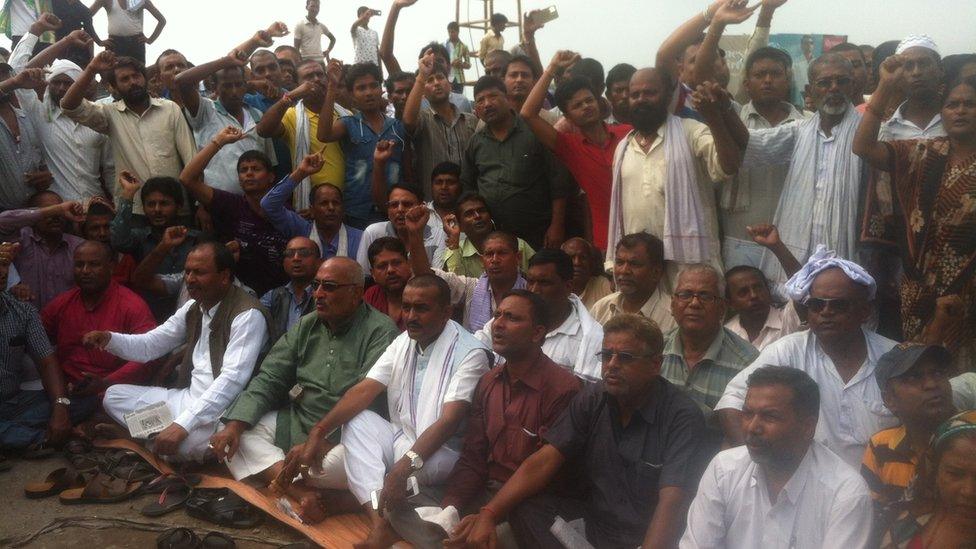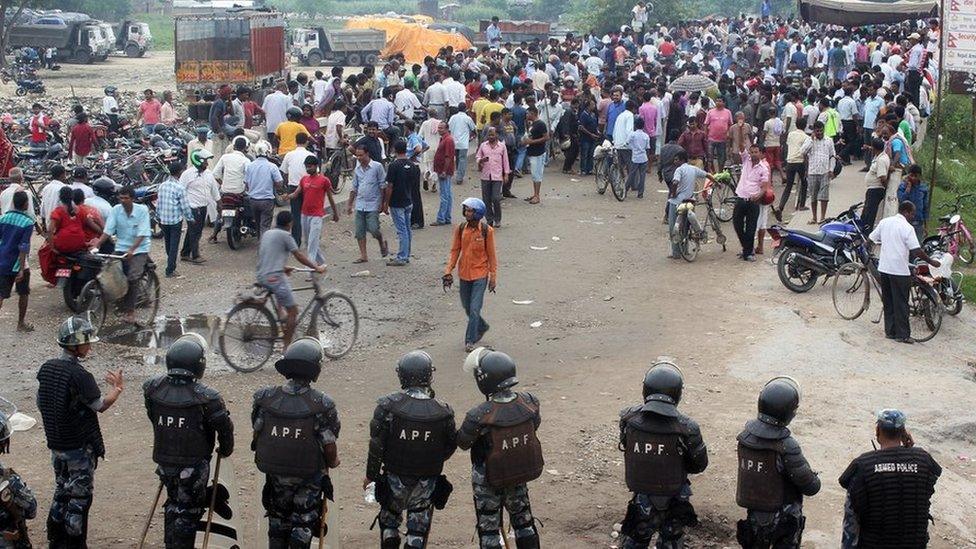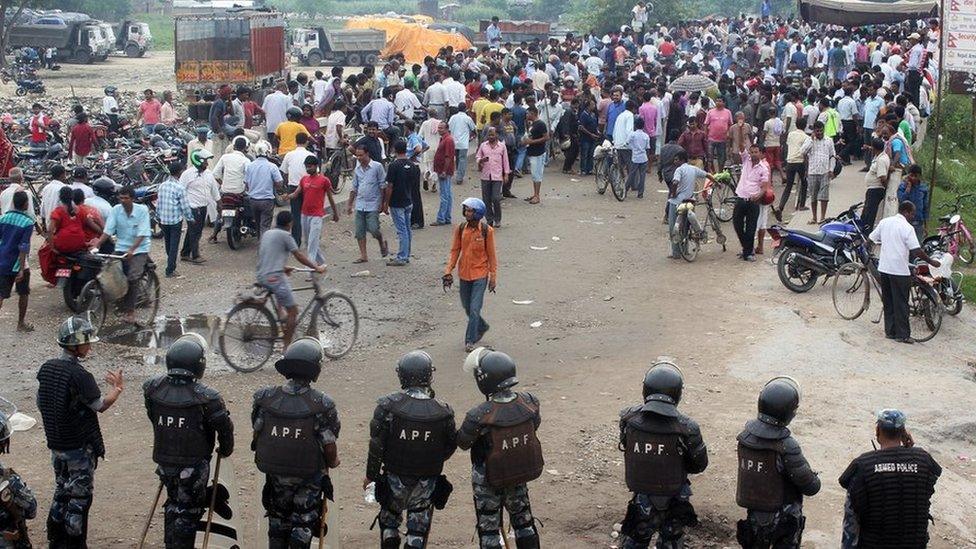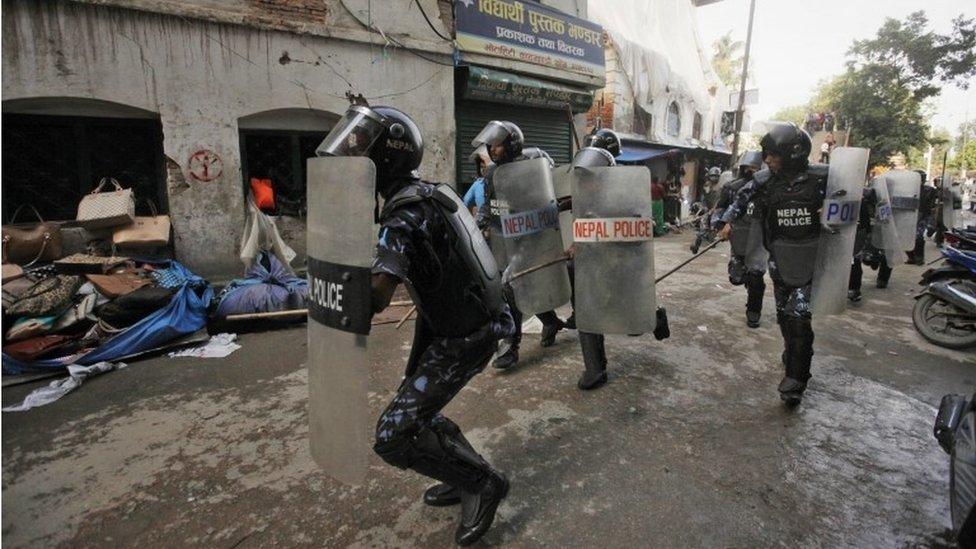Nepal blocks Indian TV channels over 'blockade'
- Published
The BBC's Sanjoy Majumder: "Nepal is an old country, but one of the world's youngest democracies"
Cable TV operators in Nepal have blocked 42 Indian channels in protest against what they call an unofficial "blockade of goods" into the country.
Scores of trucks carrying supplies are stranded on the India-Nepal border, amid protests in south Nepal over the country's newly adopted constitution.
India has been critical of Nepal's new constitution.
But it denies enforcing a blockade, saying goods are being held up due to security reasons.
The move comes after a former Maoist splinter party started a campaign against Indian movies and TV channels in Nepal.
The president of the Nepal Cable Television Association told BBC Nepali the "black-out will be indefinite".
Sudhir Parajuli said they decided to shut down the broadcast of the Indian channels as "India has been intruding in the national sovereignty of Nepal," the PTI agency said.
A Kathmandu movie theatre stopped showing Indian movies two days ago, an employee said.

Demonstrators in the region have blocked two of the main border crossings from India

Popular opinion in Nepal is that India is wilfully blocking the supply routes, leading to shortages in Nepal
Indian television channels are popular among viewers in Kathmandu and other cities in Nepal.
However there has been growing anger at what is being seen as Indian attempts to wilfully obstruct the supply of essential goods into Nepal and interference with the internal affairs of a sovereign nation.
India expressed concern over the new constitution after its adoption spurred protests by minority ethnic groups in the south of Nepal. At least 40 people have been killed in the violence.
Demonstrators in the region have since blocked two of the main border crossings from India, shutting off vital supply lines.
With several hundred trucks stuck at the frontier, supplies including sugar, salt and cooking gas cylinders are being affected.
Nepal is heavily dependent on supplies from neighbouring India.
Indian envoy Ranjit Rae was called in by the Acting Nepalese Foreign Minister Khaga Raj last week and the issue of "obstruction" in the supply of essential goods coming in from the Indian side was raised with him, the PTI news agency reported.
However it said Mr Rae had clarified that there was no obstruction from the Indian side on the movement of goods and the problem was due to unrest, protests and demonstrations on the Nepalese side.
- Published24 September 2015

- Published23 September 2015
